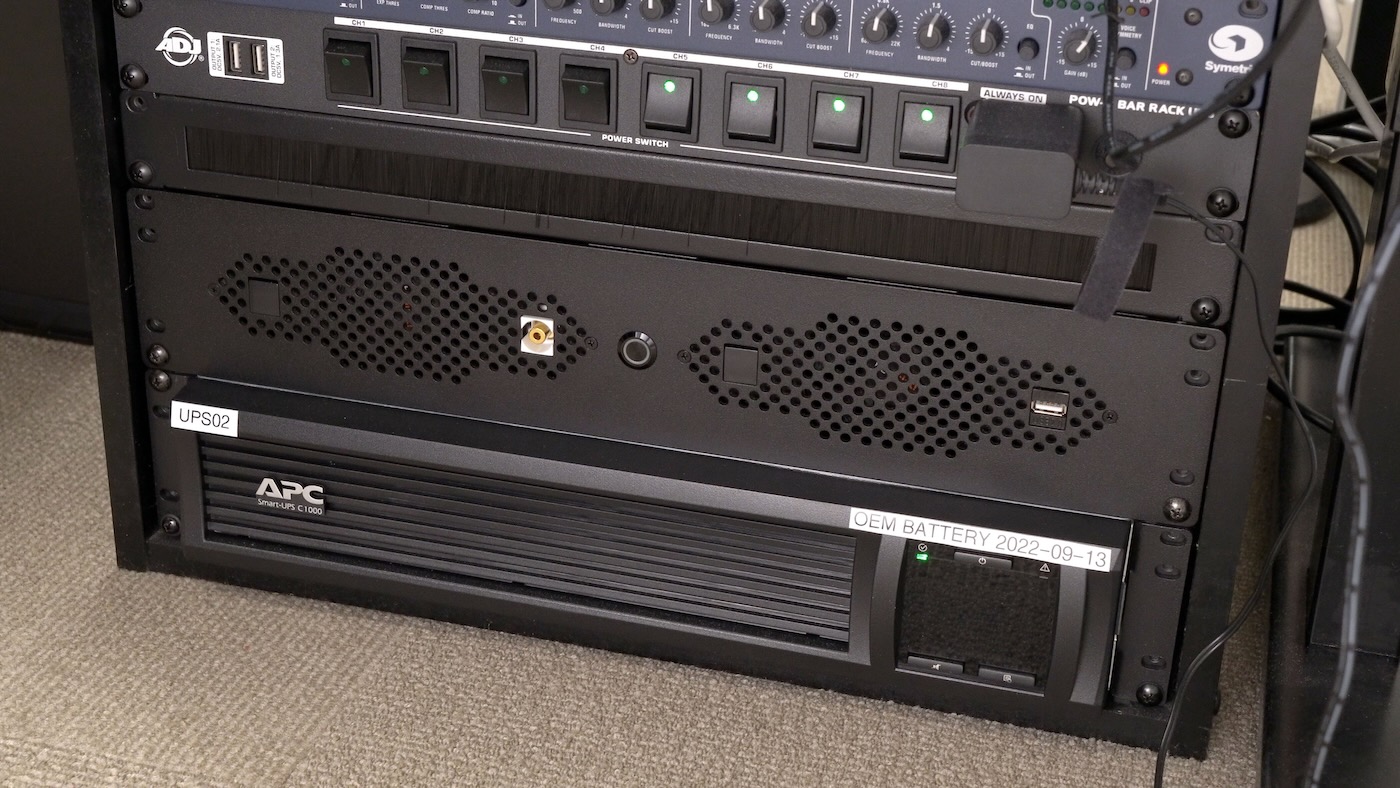Moving my PC into my rack in a 2U case
This week I finally moved my gaming/Linux PC into my little office rack—it's that 2U box above the UPS at the bottom:

I remembered seeing Linus Tech Tips' 4U build in a video a couple years ago—but he has a full 42U rack in his basement. I don't have that much space—just 2U (technically 3U if I wanted) in my little under-desk studio rack.
So after working with them last year on a similar build (but with a prototype case), I got in touch with MyElectronics and they sent over their new production Mini ITX short-depth 2U PC case.